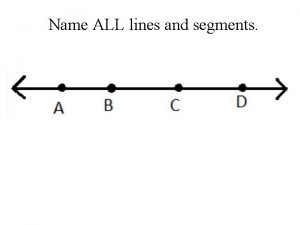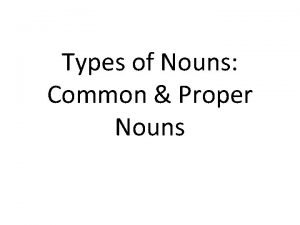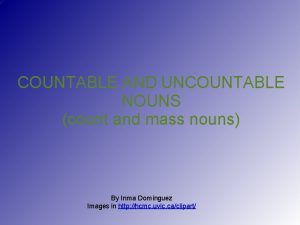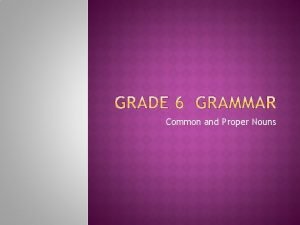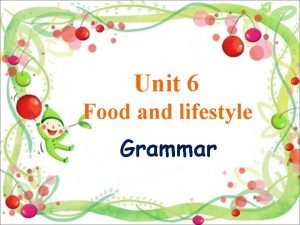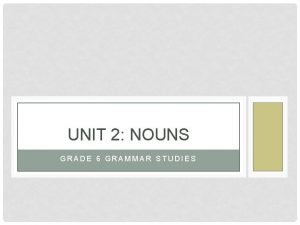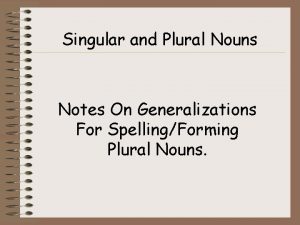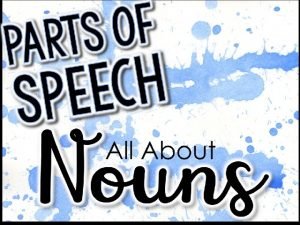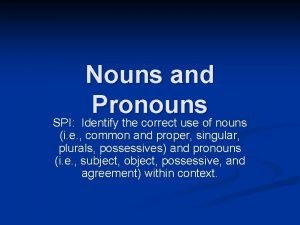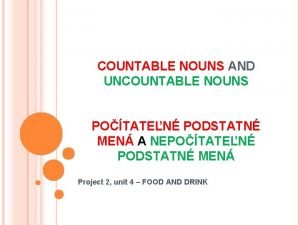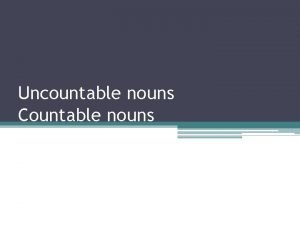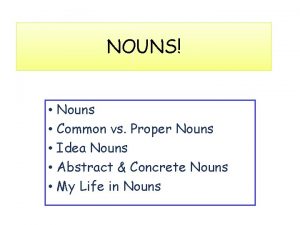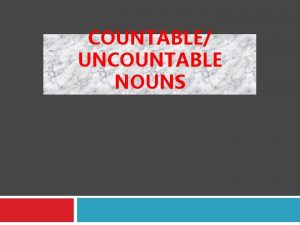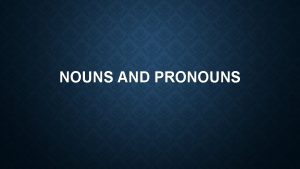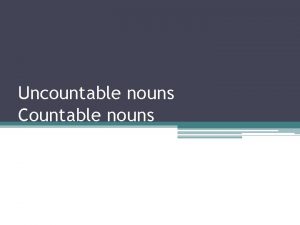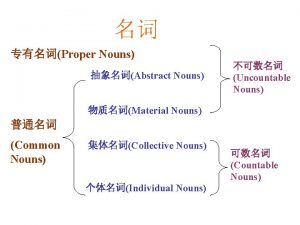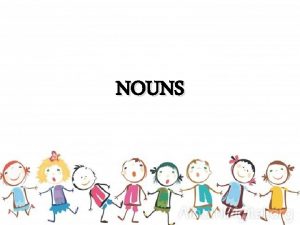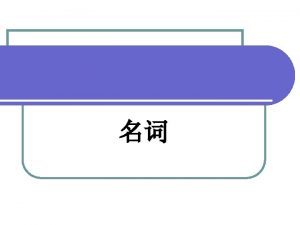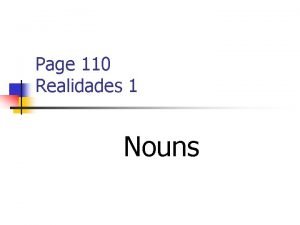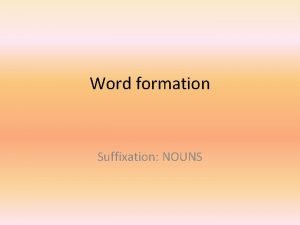NOUNS MS GARCIA NOUNS Name the following A












- Slides: 12

NOUNS MS. GARCIA

NOUNS • Name the following: • • A person A place A thing An idea

TYPES OF NOUNS • Concrete Nouns (Person, Place, Thing) • People, places, things you can perceive with your senses • See, smell, touch, hear, taste • Examples: • • Doctors Teachers Elephants Bacon Shoes New York Trains

TYPES OF NOUNS • Abstract Nouns (Idea) • Ideas, qualities, feelings • Examples: • • • Emotions Dreams Thoughts Freedom Hope Courage Fear Pain Faith Beliefs

CONCRETE & ABSTRACT NOUNS Directions: Underline concrete nouns and circle the abstract nouns. 1. The principal asked all the students to think about the importance of friendship. 2. When I looked at the new mother, her love for her newborn baby was obvious. 3. He looked at the pile of money with greed in his eyes, and then he tried to grab it. 4. He patted his full stomach with satisfaction after he finished eating his dinner. 5. Her eyes were full of hope as she asked her mom to let her keep the puppy.

COMMON VS. PROPER NOUNS • Proper nouns are words that name a specific person, place, thing, or idea. Proper nouns are capitalized so the reader can tell them apart from common nouns. • Common nouns do not name a specific person, place, thing or idea. Common nouns are not capitalized unless they are at the beginning of a sentence or part of a title.

COMMON VS. PROPER NOUNS • Proper - George Washington • Common – man • Proper - White House • Common – building • Proper - United States Constitution • Common - document

COUNTABLE NOUNS • Countable nouns refer to things we can COUNT. • Examples: • Flowers • Apples • Orchestra

COUNT NOUNS • A count noun has a singular form and a plural form. • Example: one book, three books; a leg, two legs; an apple, six apples;

NONCOUNT NOUNS • Uncountable/noncount nouns refer to things we cannot count. • Examples: • Freedom • Maturity • Intelligence

NONCOUNT NOUNS • A non-count noun has no plural form. • We use quantifiers before non-count nouns: • Example: fruit, some fruit; bread, a slice of bread; homework; a lot of homework; information, a little information

QUIZ • http: //www. mcwdn. org/grammar/nounscountquiz/nounco untquiz. html • http: //www. softschools. com/quizzes/grammar/noun/quiz 2 95. html
 Name all the lines name all the segments name all the rays
Name all the lines name all the segments name all the rays Apples are countable or uncountable
Apples are countable or uncountable Common noun vs proper noun
Common noun vs proper noun Is park countable or uncountable
Is park countable or uncountable Proper noun of day
Proper noun of day Lifestyle countable or uncountable
Lifestyle countable or uncountable Charles possessive
Charles possessive Singular plural with es
Singular plural with es Pig common or proper noun
Pig common or proper noun Plural nouns y gender nouns
Plural nouns y gender nouns Brainpop jr pronouns
Brainpop jr pronouns Nepocitatelne podstatne mena
Nepocitatelne podstatne mena Hát kết hợp bộ gõ cơ thể
Hát kết hợp bộ gõ cơ thể
